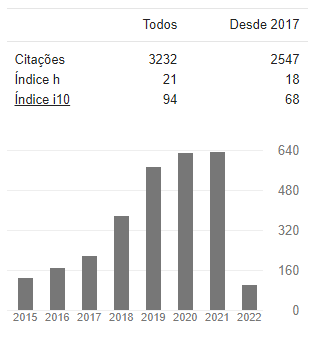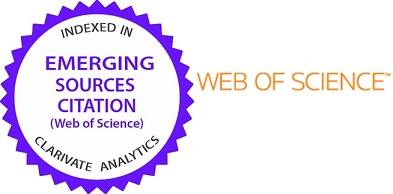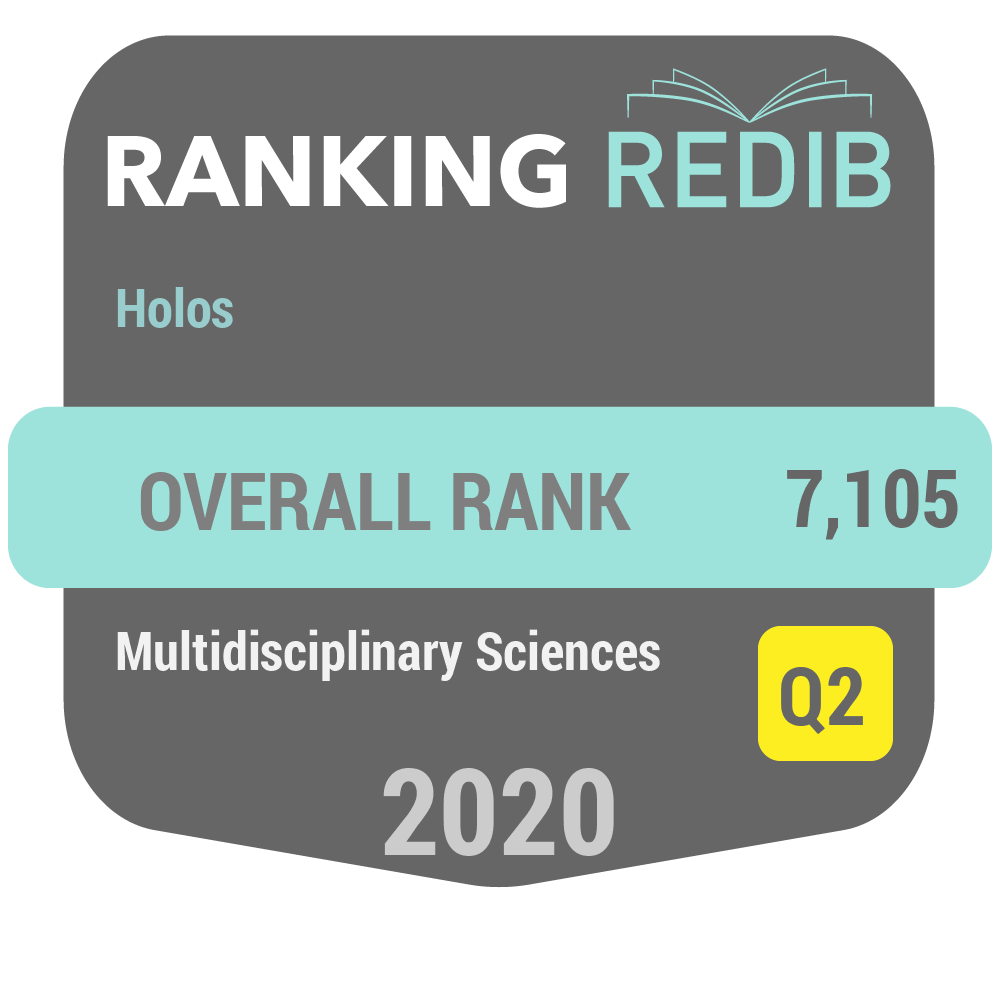ENTREPREUNEURSHIP EDUCATION IN PORTUGAL – CONSIDERATIONS ON THE TOPIC AND ITS DEVELOPMENT ENVIRONMENT
DOI:
https://doi.org/10.15628/holos.2014.2587Palavras-chave:
Education, Entrepreneurship, Cultural IssueResumo
The role and importance of entrepreneurship as a booster of economic development has been recognized over time, in line, among others, with Schumpeter (1934), Leibenstein (1968), Kirzner (1997), Baumol (2002) and Acs et al . (2004). The establishment of new businesses is searched and needed, particularly in an economic context such as we are currently living, and this places emphasis on the issue of entrepreneurship education at our schools, which necessarily involves discussion and debate on the topic in order to ensure that results can actually lead us to reach the intended goals. If, on one hand, in Portuguese higher education system can already be found some programs and projects to teach how a business should be thought through and scheduled, on the other hand, presently the discussion consists in the possibility of integration of the entrepreneurship subject on previous levels of education, where the programs contents’ are broader, more global and less specific. This has lead to a discussion on the definition of entrepreneurship, and apparently the option to integrate this issue in primary and secondary education appears to be in line with inducing and facilitating the setting up of attitudes, rather than acquiring business expertise or achieving skills in the economic sphere. Some authors - Hofstede (2001), George and Zahra (2002), Silva et al. (2009) - stated that cultural issues are one of the factors determining and driving entrepreneurial behavior, raising the question that teaching strategies ought to take these conditioning factors into account. The present paper aims to give a brief characterization of entrepreneurship education, particularly in Portugal, and to reflect on how cultural issues can and should guide the teaching strategies and future programs or projects designed to promote the entrepreneurial mind and attitudes at all education levels within the considered territory.
Downloads
Referências
ACS, Z. J., AUDRETSCH, D. B., BRAUNERHJELM, P., & CARLSSON, B. (2004), The missing link: The knowledge filter, entrepreneurship and endogenous growth. Discussion Paper, No. 4783, December. London, UK: Center for Economic Policy Research.
AUDRETSCH, D. B., GRILO, I., e THURIK, A. R. (2007), Handbook of research on entrepreneurship policy, Cheltenham, UK: Edward Elgar.
AUDRETSCH, D., KEILBACH, M., e LEHMAN, E. (2006), Entrepreneurship and economic growth, Oxford University Press.
BAUMOL, W. J. (2002). The free-market innovation machine, Princeton: Princeton University Press.
BECHARD, J., e GRÉGOIRE, D. (2005), “Entrepreneurship education research revisited: The case of higher education”, Academy of Management Learning and Education, 4(1), pp.22–49.
Delors, J. et al. (1996). Educação um tesouro a descobrir. Relatório para a UNESCO da Comissão Internacional sobre Educação para o século XXI. Ministério da Educação e do Desporto. Portugal. Unesco. Edições ASA. B. 9
DeTIENNE, D., e CHANDLER, G. (2004), “Opportunity identification and its role in the entrepreneurial classroom: A pedagogical approach and empirical test”, Academy of Management Learning and Education, 3(3), pp.242–257.
DRUCKER, Peter (1985), Innovation and Entrepreneurship: Practice and Principles, Harper & Row, New York.
FIET, J. O. (2000), “The theoretical side of teaching entrepreneurship”, Journal of Business Venturing, nº16, pp. 1–24.
GEORGE, G. and ZAHRA, S. (2002), “Culture and its consequences for entrepreneurship”. Entrepreneurship Theory and Practice, 26 (4), pp. 5-8.
HAYTON, J., GEORGE, G. and ZAHRA, S. (2002), “National culture and entrepreneurship: a review of behavioural research”. Entrepreneurship Theory and Practice, 26 (4), pp. 33-35.
HEINONEN, & POIKKIJOKI, (2006), “An entrepreneurial-directed approach to entrepreneurship education: mission impossible?” Journal of Management Development, V25, Nº1, pp. 80-94.
HOFSTEDE, G. (2001), Culture’s consequences: comparing values, behaviors, institutions, and organizations across nations, 2nd edition, Sage Publications, California.
HONIG, B. (2004), “Entrepreneurship education: Toward a modelof contingency-based business planning”, Academy of Management Learning and Education, V3, nº3, pp.258–273.
KIRZNER, I. (1997), “Entrepreneurial discovery and the competitive market process: An Austrian approach”, Journal of Economic Literature, 35, pp.60–85.
LEIBENSTEIN, H. (1968). “Entrepreneurship and development”, The American Economic Review, 58(2), pp.72–83.
LEVIE ,Jonathan and AUTIO, Erkko (2008), “A theoretical grounding and test of the GEM model”, Small Bus Econ, 31, pp.235–263
MONTEIRO DA SILVA, Marco A. O., GOMES, Luiz F. A. M. e CORREIA, Manuela F. (2009) “Entrepreneurial Culture: a Comparative Study of Entrepreneurs in Brazil and Portugal”, RAC, Curitiba, v. 13, n. 1, art. 4, pp. 57-71.
MULET, J. (2011): “Un diagnóstico del estado de la innovación en España”, Papeles de Economía Española, FUNCAS, núm. 27, pp. 2-12.
PETERMAN, N. e KENNEDY, J. (2003), “Enterprise education: Influencing students’ perceptions of entrepreneurship”, Entrepreneurship Theory & Practice, 28, pp.129–144.
REYNOLDS, P. D., HAY, M., & CAMP, M. S. (1999), Global entrepreneurship monitor 1999 executive report. Babson Park, MA: Babson College; London, UK: London Business School.
SCHUMPETER, J. A. (1934), The theory of economic development, Cambridge, Harvard University Press.
TEIXEIRA, Cláudia (2012), Educação para o Empreendedorismo - Um estudo sobre o Projeto Nacional de Educação para o Empreendedorismo, Tese de Mestrado, Universidade de Coimbra.
Documents:
Resolução do Conselho de Ministros n.º 54/2011, Programa Estratégico para o Empreendedorismo e a Inovação + E, + I , Anexo publicado no Diário da República, 1.ª série — N.º 243 — 21 de Dezembro de 2011.
Education, Audiovisual and Culture Executive Agency - EACEA - (2012), Entrepreneurship Education at School in Europe - National Strategies, Curricula and Learning Outcomes, Audiovisual and Culture Executive Agency - EACEA P9 Eurydice and Policy Support, March.
European Comission (2012), Effects and impact of entrepreneurship programmes in higher education, Entrepreneurship Unit Directorate-General for Enterprise and Industry - European Commission, Brussels, March.
European Commission (2011), Entrepreneurship Education: Enabling Teachers as a Critical Success Factor - A report on Teacher Education and Training to prepare teachers for the challenge of entrepreneurship education, Entrepreneurship Unit, Directorate-General for Enterprise and Industry, Bruxelles, November.
European Commission (2007). Assessment of compliance with the entrepreneurship education objective in the context of the 2006 Spring Council Conclusions. Brussels.
INTUITO – Consultoria de Gestão, S.A. (2011), IES – Inovação e Empreendedorismo Sustentados - Estudo de Benchmarking Internacional, IEMINHO – Instituto Empresarial do Minho.
Sites:
http://entrepreneurs.about.com/gi/o.htm?zi=1/XJ&zTi=1&sdn=entrepreneurs&cdn=money&tm=84&f=00&su=p284.13.342.ip_p504.6.342.ip_&tt=2&bt=4&bts=4&zu=http%3A//www.gemconsortium.org/ , consulted in March, 2013.
http://eacea.ec.europa.eu/education/eurydice, consulted in November, 2012, Entrepreneurship Education at School in Europe - National Strategies, Curricula and Learning Outcomes, March 2012, Eurydice network
http://www.dgidc.min-edu.pt/educacaocidadania/index.php?s=directorio&pid=48, consulted in April, 2013.









































